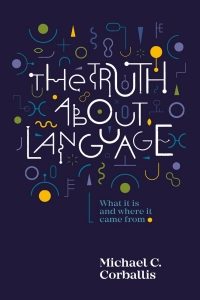"It was a dark and chilly winter's night, but the crowd in the foyer of the Charles Luney Auditorium at St. Margaret's College didn't let that deter them. They were bundled up warm, busy chatting to their friends, and keen to get into the auditorium to hear Auckland University's Michael Corballis present 'Mental Travels in Space and Time'."
Did you just get an image in your head of how that scene might have looked? If you've ever been into the Charles Luney Auditorium before, your mind will have travelled back there, remembered how it looked, and added in people in winter clothes and cold dark weather to suit the story.
If you haven't been to this particular location, you might have remembered your old school auditorium instead, or maybe the foyer of the old Christchurch Town Hall or Isaac Theatre Royal, and pictured the scene as if it was happening there. Either way, regardless of how you imagined this scene, you based it upon your memories of a time you were in a particular location, and what you saw and heard, and how it made you feel.
You have just used your brain for mental time travel - using memories as a way to imagine ourselves in places and times that we are not currently in. That was the topic of Professor Corballis' speech, held to celebrate the 150th anniversary of the Royal Society Te Apārangi. The audience learnt about the hippocampus - the part of the brain which helps form memories of events, and which reinterprets those memories and helps us daydream and imagine ourselves in new places and times.
It's because of the hippocampus that we can empathise, and put ourselves in another person's situation, why authors and storytellers can come up with fictional made-up stories, and why readers sometimes get so caught up in the stories they are reading - our brain is letting us experience the story in the same way as it would if we were actually living it.
The audience also learnt what happens if the hippocampus is damaged. If this happens, you can't form memories of the things you have done, but you remember skills that you have learnt. Could you imagine not having any memories of specific events? Or having others tell you that you have done something or gone somewhere with them, but you don't remember doing it? Yet at the same time, you don't have any difficulty remembering how to carry out skills such as walking, talking, or drawing? I can't imagine that personally, but we heard about some individuals for whom this is normal.
The speech Professor Corballis gave was entertaining and informative, and these same characteristics come through in his new book The Truth About Language. I really enjoyed how accessible this book is - no matter your background, the conversational writing style is easy to read. With anecdotes, quotes from literature, and references to historical and contemporary linguistic theories, Corballis tells the story of how language came to be, and why it is so different in different countries and communities. Don't worry if you aren't a linguist - you will still be able to understand the points Corballis is making, and enjoy the information found in this book. For those readers who do want a more in-depth understanding of the evolution of language, however, the book includes references to other theories and theorists, generous explanatory notes, and a comprehensive bibliography to guide further reading.
From the big bang to the different languages used world-wide in 2017, there are so many aspects of language - body language, pronunciation and sounds, grammar, and so much more. Michael Corballis' The Truth About Language is a fun way to learn about this fascinating subject, and Christchurch City Libraries has a range of his other books that delve further into the subject. So, if language, the mind, and psychology are things you're interested in, then check them out on our catalogue!
The Truth About Language: What it is and where it came from
by Michael Corballis
Published by Auckland University Press
ISBN: 9781869408633
Find out more
- More titles by Michael Corballis
- Find titles about thought and thinking
- Find titles about language and languages





Add a comment to: Memories, mind-wandering, and the evolution of language